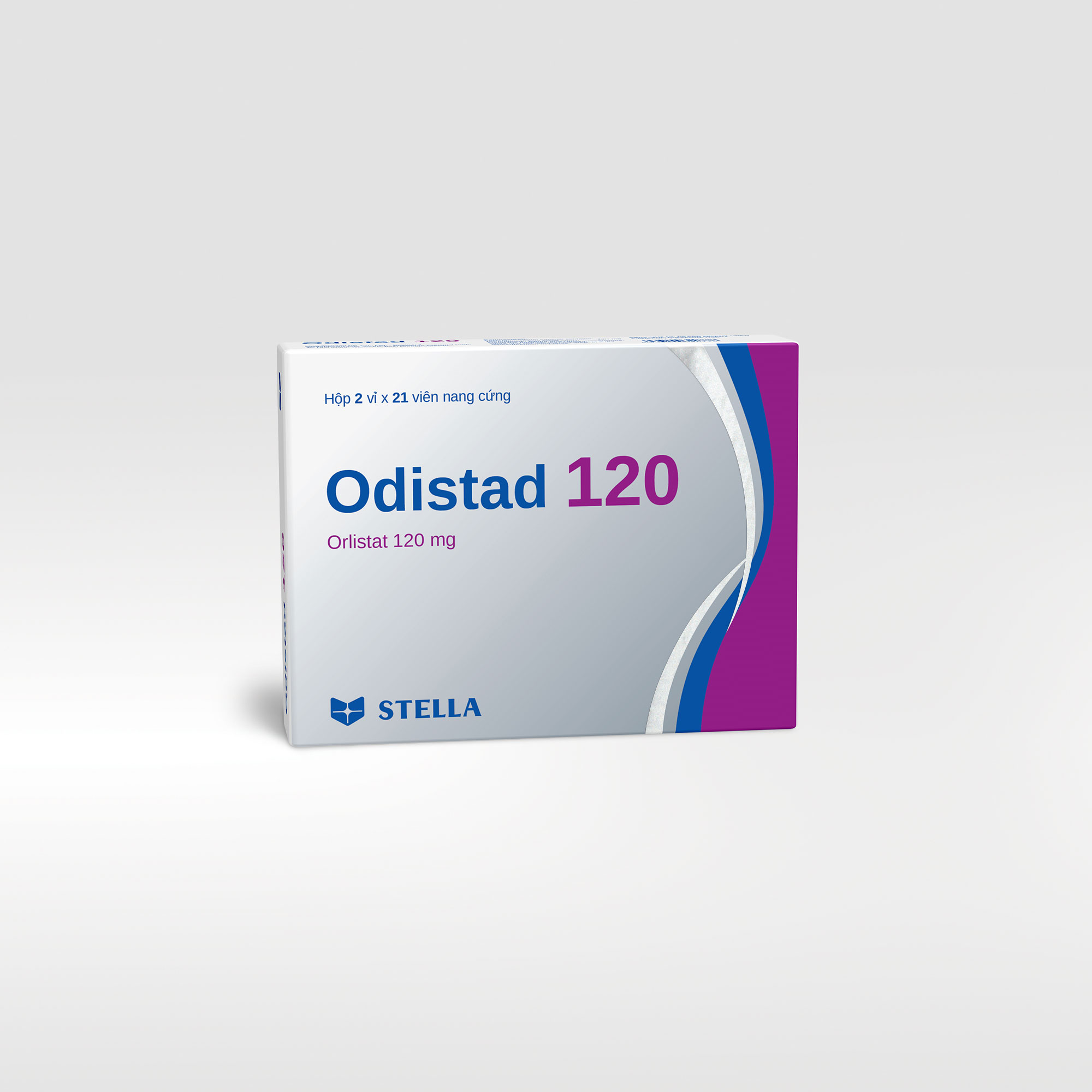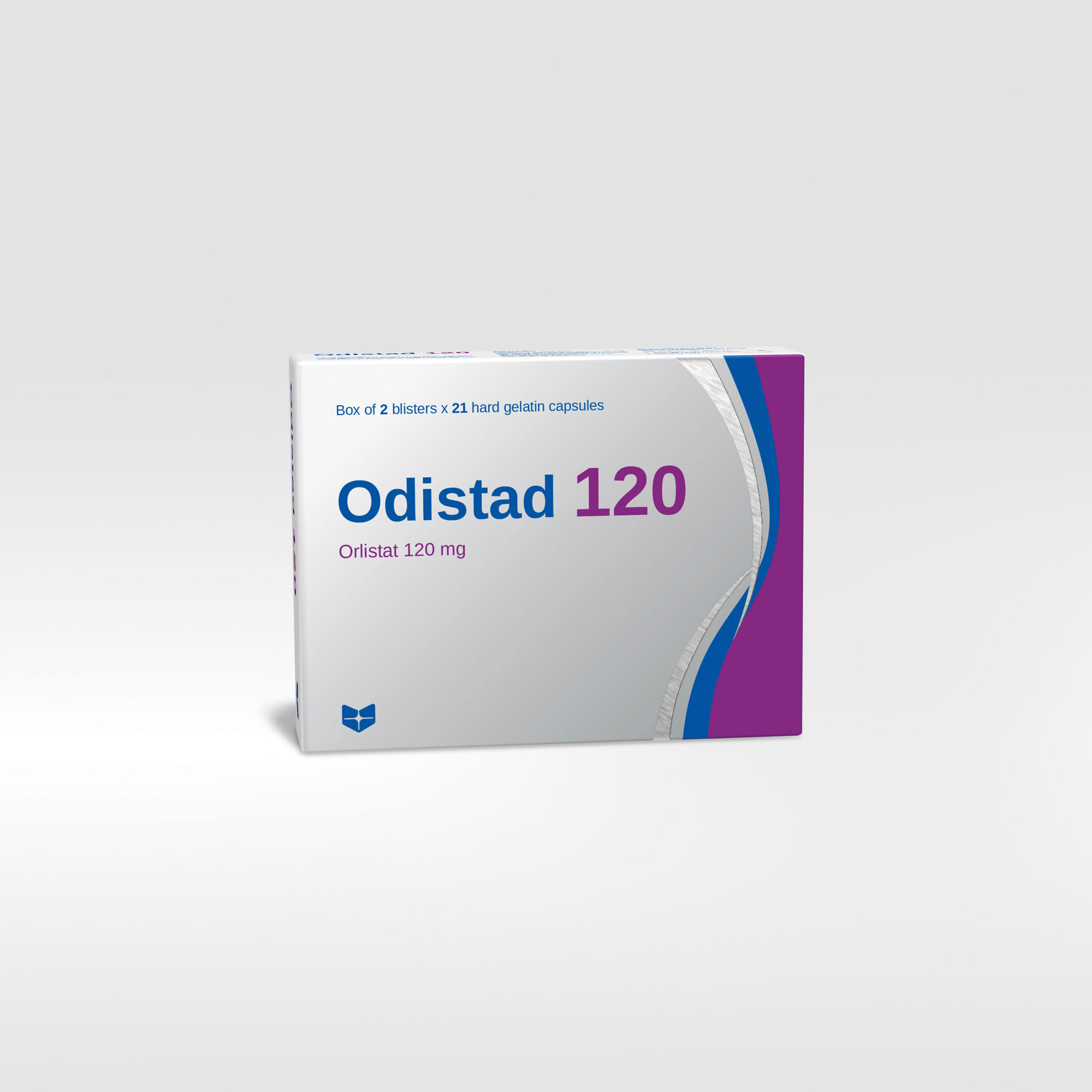Indications
Orlistat is indicated in conjunction with a mildly hypocaloric diet for the treatment of obese patients as well as to reduce the risk for weight regain in patients with a body mass index (BMI) greater or equal to 30 kg/m², or overweight patients (BMI ≥ 28 kg/m²) with associated risk factors (e.g., hypertension, diabetes mellitus, hyperlipidemia).
Dosage
Management of obesity and weight regain in adults:
The recommended dose of Odistad 120 is one 120 mg capsule three times a day with each main meal containing fat.
Usage
- The capsule should be taken with water immediately before, during or up to 1 hour after each main meal. If a meal is missed or contains no fat, the dose of orlistat should be omitted.
- Dosage exceeding three times daily have not been shown to provide additional benefit.
- If patients have been unable to lose weight after 12 weeks of treatment with orlistat, they should consult their doctor or pharmacist. It may be necessary to discontinue treatment.
Remarks
- Diet and exercise are important parts of a weight loss programme. It is recommended that a diet and exercise programme are started before beginning treatment with orlistat.
- The patient should be on a nutritionally balanced, mildly hypocaloric diet that contains approximately 30% of calories from fat.
- The daily intake of fat, carbohydrate and protein should be distributed over three main meals.
- The diet and exercise programme should continue to be followed when treatment with orlistat is stopped.
- The safety and effectiveness beyond 4 years have not been determined at this time.
- Safety and efficacy in children younger than 18 years of age have not been established.
- There are limited data on the use of orlistat in the elderly. The effect of orlistat in individuals with hepatic and/or renal impairment has not been studied. However, as orlistat is minimally absorbed, no dosage adjustment is necessary in elderly and in individuals with hepatic and/or renal impairment.


